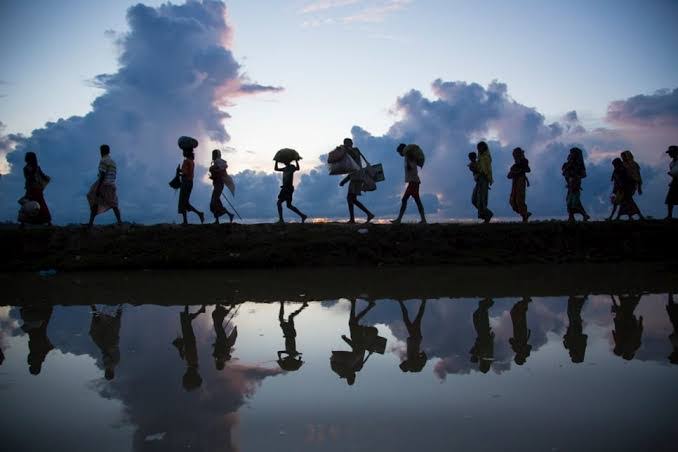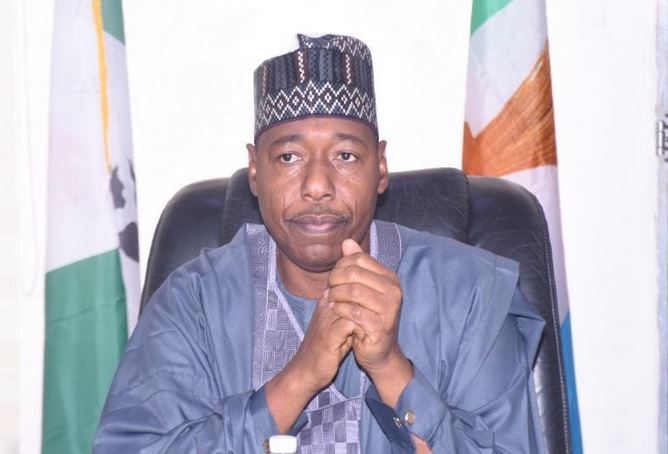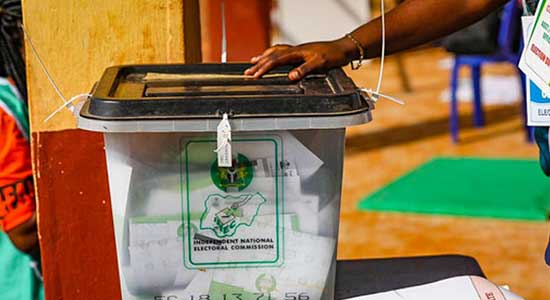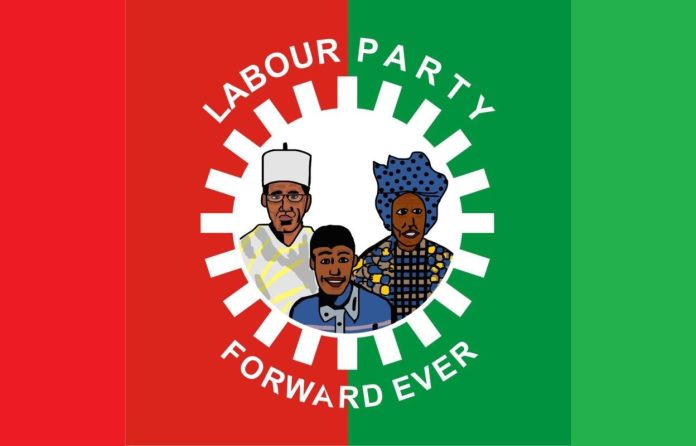The opinions presented in this piece are those of the author and do not necessarily represent InTv Media’s editorial position.Thank you.
ILEKA finished high school the youngest member of his graduating set and one of the brightest. He attended an international school in Lagos where the fees were out of the reach of all but the children of the most comfortable in Nigeria. He desired to pursue a career in a rarefied field of engineering, which could only be fulfilled outside the country.

So, the month after he finished high school in 2019, Ileka was off to England where, at the end of a few weeks of vacation, he ended up in a public (private) school not far from Heathrow Airport for his Advanced Levels. In 2021, he began a three-year course in Engineering in England.

Two months after the onset of Ileka’s sojourn in the university, doctors in Lagos diagnosed his 86-year-old his grandfather with a terminal condition. Ileka’s grandfather took his undergraduate qualifications at Oxford University before graduating with a doctorate degree in the humanities from the University of London just as Nigeria gained Independence.
Putting his love of country ahead of a promising career as an international public servant, Ileka’s grandad returned to Nigeria where he helped craft official policy at the highest levels, while also working as an academic, consultant and a trusted adviser to investors and multinationals.
READ ALSO: SORRY,’ YOU ARE NOT SORRY: Why Apology Is Not Always Enough
By the time he received the diagnosis in 2021, Ileka’s grandad had long become disillusioned with the trajectory of the country. A proud community leader, his country home had recently been attacked by political thugs who claimed that he had mentored a much detested politician in his home state. Painfully, Ileka’s grandad decided that he would live out his last days in England. With the help of his children, he relocated to London to be hospitalised.
The consultant at the head of the team to care for Ileka’s grandad in England turned out to be not just from Nigeria but from a neighbouring local government area in his home state. The son of a primary school teacher, the consultant left Nigeria in 1997 as a junior doctor with his salary arrears of 15 months unpaid.

He worked for three years as a driver and security guard to finance his equivalency certifications as a medical doctor in England. Even more than the medical team, the nursing team that looked after Ileka’s grandad was also made up of mostly Nigerians and some Ghanaians. Even the cleaning of the hospital was outsourced to a company run by Nigerians.
This story of Ileka, his grandad, the medical doctor, the nurses, and the cleaners has only been adapted for the names. Every other element in this story is very real. It embodies only partly the complexity of a phenomenon known to Nigerians as “Japa”.
Derived from the Yoruba word for escape or running away, Japa has evolved into both a verb and an institutional noun with different meanings for different people. It is the subject of street wisdom and of ante-room banter. Singer, Naira Marley, has celebrated Japa in a popular single in which he describes it as “the act of escaping or avoiding something, especially by way of trickery (or Yoruba demon wits).”
A Nigerian tweep pursues this theme of wit when he frames Japa as “a word that describes the entrepreneurial spirit of Nigerians who desire to export their talents, skills, products, etc, including themselves, to the world”. The presidency trivialises the issue, claiming, falsely, that Nigerians have always desired to Japa.
Japa is not just the verb for leaving (the country) under certain conditions, it is also a collective noun for a concatenation of the consequences of malgovernance that forces aspirational and productive people, mostly professionals, to quit the country. So, Ileka may not ordinarily be spoken about in terms of Japa unlike the doctors, nurses, or cleaners from Nigeria who looked after his grandad.
Yet, while all of them may not be involved in Japa as a verb, they are all victims of the phenomenon that makes Japa into a noun. Chris Ayokwu speaks of these as including “youth unemployment, stagflation, insecurity, institutionalised corruption, and leadership deficit (which) have all conspired to create a dystopian maelstrom of sorts, a rapacious vortex into which young dreams are sucked and meaning is blanched from existence.… there is absolutely nothing that inspires hope wherever one turns.”
Japa is thus what happens when government becomes a relay race between a succession of dream killers. The Europeans tend to see it as economic migration or as applicable to people who leave the country under economic duress. But not everyone who leaves the country necessarily does Japa. From the USA, former president of the Inter-American Commission of Human Rights, Professor Tom Farer, uses the expression “migrants” for “all persons from the Global South seeking to enter the rich liberal capitalist states or, having already entered, who remain without a valid visa.”
In many ways, the Euro-American default to the notion of “economic migration” to describe the push factors implicated in Japa does injustice to the subject matter and to its inherently complex character. For every push factor in places like Nigeria, there are pull factors from the countries of the Global North.
People like David Livingstone, Henry Morton Stanley, and Mungo Park malingered and rampaged all over Africa in the age of Queen Victoria, claiming to “discover” communities and landmarks long inhabited by settled populations. Today, despite harder borders everywhere, folks from the Global South are paying back under equally trying conditions. The comparisons are impressive.
When Livingstone and his generation of prejudiced predators were doing their thing, they claimed a civilizational calling. Today, the young people from the Global South doing the same equally lay claim to existential missions that are no less compelling. From providing ample reproductive indulgences to redress negative population growth in places like Italy; to reversing skill deficits in places like the United Kingdom; or a mix of both as in Canada; many of the exponents of Japa today are able to marry their search for a future with the desire to fulfill a larger purpose.
Take the United Kingdom, for instance. As the consequences of Brexit have become stark, the UK has in the past year begun to look to the Commonwealth, including Nigeria, for such basic skills as truck drivers and teachers. Despite COVID-19 or because of it, in three years between 2019 to 2022, Nigeria exported nearly 4,500 nurses to the United Kingdom. Over a six month period alone in 2022, this export of Nigerian nurses to the UK rose by over 25%.
This does not include Nigerian professionals originally trained in other disciplines who retrained in the United Kingdom in order to become nurses. Despite negative reputations for crime, Nigeria is even busy exporting priests and pastors to the countries who claim to have first brought Christianity to its peoples.
For the host countries in the Global North, they get the benefit of educated workforce on the cheap. For those who choose to partake in Japa, it is an opportunity to explore a world bereft of the man-made stratification and glass-ceilings that define being Nigerian. The opportunity cost for many is the initial artisanalisation of otherwise highly skilled professionals. It can come with additional costs in terms of dignity, mental health, overall well-being or, in some cases, even life. It is a chance they are willing to take; the price paid by successive generations for congenital failures of national leadership.
As Nigeria prepares for a seminal vote in 2023, one surprise is that Japa is not getting more attention as a political issue. A country being emptied of its most talented has to worry for its long term sustainability. Politicians can work to diminish the appeal of Japa as verb by addressing those things that give resonance to the noun. For the young people in particular, one question may be important: what would you think of a politician who promises to make the country too attractive for Japa?
Chidi Odinkalu
The opinions presented in this piece are those of the author and do not necessarily represent InTv Media’s editorial position.Thank you.
ILEKA finished high school the youngest member of his graduating set and one of the brightest. He attended an international school in Lagos where the fees were out of the reach of all but the children of the most comfortable in Nigeria. He desired to pursue a career in a rarefied field of engineering, which could only be fulfilled outside the country.

So, the month after he finished high school in 2019, Ileka was off to England where, at the end of a few weeks of vacation, he ended up in a public (private) school not far from Heathrow Airport for his Advanced Levels. In 2021, he began a three-year course in Engineering in England.

Two months after the onset of Ileka’s sojourn in the university, doctors in Lagos diagnosed his 86-year-old his grandfather with a terminal condition. Ileka’s grandfather took his undergraduate qualifications at Oxford University before graduating with a doctorate degree in the humanities from the University of London just as Nigeria gained Independence.
Putting his love of country ahead of a promising career as an international public servant, Ileka’s grandad returned to Nigeria where he helped craft official policy at the highest levels, while also working as an academic, consultant and a trusted adviser to investors and multinationals.
READ ALSO: SORRY,’ YOU ARE NOT SORRY: Why Apology Is Not Always Enough
By the time he received the diagnosis in 2021, Ileka’s grandad had long become disillusioned with the trajectory of the country. A proud community leader, his country home had recently been attacked by political thugs who claimed that he had mentored a much detested politician in his home state. Painfully, Ileka’s grandad decided that he would live out his last days in England. With the help of his children, he relocated to London to be hospitalised.
The consultant at the head of the team to care for Ileka’s grandad in England turned out to be not just from Nigeria but from a neighbouring local government area in his home state. The son of a primary school teacher, the consultant left Nigeria in 1997 as a junior doctor with his salary arrears of 15 months unpaid.

He worked for three years as a driver and security guard to finance his equivalency certifications as a medical doctor in England. Even more than the medical team, the nursing team that looked after Ileka’s grandad was also made up of mostly Nigerians and some Ghanaians. Even the cleaning of the hospital was outsourced to a company run by Nigerians.
This story of Ileka, his grandad, the medical doctor, the nurses, and the cleaners has only been adapted for the names. Every other element in this story is very real. It embodies only partly the complexity of a phenomenon known to Nigerians as “Japa”.
Derived from the Yoruba word for escape or running away, Japa has evolved into both a verb and an institutional noun with different meanings for different people. It is the subject of street wisdom and of ante-room banter. Singer, Naira Marley, has celebrated Japa in a popular single in which he describes it as “the act of escaping or avoiding something, especially by way of trickery (or Yoruba demon wits).”
A Nigerian tweep pursues this theme of wit when he frames Japa as “a word that describes the entrepreneurial spirit of Nigerians who desire to export their talents, skills, products, etc, including themselves, to the world”. The presidency trivialises the issue, claiming, falsely, that Nigerians have always desired to Japa.
Japa is not just the verb for leaving (the country) under certain conditions, it is also a collective noun for a concatenation of the consequences of malgovernance that forces aspirational and productive people, mostly professionals, to quit the country. So, Ileka may not ordinarily be spoken about in terms of Japa unlike the doctors, nurses, or cleaners from Nigeria who looked after his grandad.
Yet, while all of them may not be involved in Japa as a verb, they are all victims of the phenomenon that makes Japa into a noun. Chris Ayokwu speaks of these as including “youth unemployment, stagflation, insecurity, institutionalised corruption, and leadership deficit (which) have all conspired to create a dystopian maelstrom of sorts, a rapacious vortex into which young dreams are sucked and meaning is blanched from existence.… there is absolutely nothing that inspires hope wherever one turns.”
Japa is thus what happens when government becomes a relay race between a succession of dream killers. The Europeans tend to see it as economic migration or as applicable to people who leave the country under economic duress. But not everyone who leaves the country necessarily does Japa. From the USA, former president of the Inter-American Commission of Human Rights, Professor Tom Farer, uses the expression “migrants” for “all persons from the Global South seeking to enter the rich liberal capitalist states or, having already entered, who remain without a valid visa.”
In many ways, the Euro-American default to the notion of “economic migration” to describe the push factors implicated in Japa does injustice to the subject matter and to its inherently complex character. For every push factor in places like Nigeria, there are pull factors from the countries of the Global North.
People like David Livingstone, Henry Morton Stanley, and Mungo Park malingered and rampaged all over Africa in the age of Queen Victoria, claiming to “discover” communities and landmarks long inhabited by settled populations. Today, despite harder borders everywhere, folks from the Global South are paying back under equally trying conditions. The comparisons are impressive.
When Livingstone and his generation of prejudiced predators were doing their thing, they claimed a civilizational calling. Today, the young people from the Global South doing the same equally lay claim to existential missions that are no less compelling. From providing ample reproductive indulgences to redress negative population growth in places like Italy; to reversing skill deficits in places like the United Kingdom; or a mix of both as in Canada; many of the exponents of Japa today are able to marry their search for a future with the desire to fulfill a larger purpose.
Take the United Kingdom, for instance. As the consequences of Brexit have become stark, the UK has in the past year begun to look to the Commonwealth, including Nigeria, for such basic skills as truck drivers and teachers. Despite COVID-19 or because of it, in three years between 2019 to 2022, Nigeria exported nearly 4,500 nurses to the United Kingdom. Over a six month period alone in 2022, this export of Nigerian nurses to the UK rose by over 25%.
This does not include Nigerian professionals originally trained in other disciplines who retrained in the United Kingdom in order to become nurses. Despite negative reputations for crime, Nigeria is even busy exporting priests and pastors to the countries who claim to have first brought Christianity to its peoples.
For the host countries in the Global North, they get the benefit of educated workforce on the cheap. For those who choose to partake in Japa, it is an opportunity to explore a world bereft of the man-made stratification and glass-ceilings that define being Nigerian. The opportunity cost for many is the initial artisanalisation of otherwise highly skilled professionals. It can come with additional costs in terms of dignity, mental health, overall well-being or, in some cases, even life. It is a chance they are willing to take; the price paid by successive generations for congenital failures of national leadership.
As Nigeria prepares for a seminal vote in 2023, one surprise is that Japa is not getting more attention as a political issue. A country being emptied of its most talented has to worry for its long term sustainability. Politicians can work to diminish the appeal of Japa as verb by addressing those things that give resonance to the noun. For the young people in particular, one question may be important: what would you think of a politician who promises to make the country too attractive for Japa?
Chidi Odinkalu
The opinions presented in this piece are those of the author and do not necessarily represent InTv Media’s editorial position.Thank you.
ILEKA finished high school the youngest member of his graduating set and one of the brightest. He attended an international school in Lagos where the fees were out of the reach of all but the children of the most comfortable in Nigeria. He desired to pursue a career in a rarefied field of engineering, which could only be fulfilled outside the country.

So, the month after he finished high school in 2019, Ileka was off to England where, at the end of a few weeks of vacation, he ended up in a public (private) school not far from Heathrow Airport for his Advanced Levels. In 2021, he began a three-year course in Engineering in England.

Two months after the onset of Ileka’s sojourn in the university, doctors in Lagos diagnosed his 86-year-old his grandfather with a terminal condition. Ileka’s grandfather took his undergraduate qualifications at Oxford University before graduating with a doctorate degree in the humanities from the University of London just as Nigeria gained Independence.
Putting his love of country ahead of a promising career as an international public servant, Ileka’s grandad returned to Nigeria where he helped craft official policy at the highest levels, while also working as an academic, consultant and a trusted adviser to investors and multinationals.
READ ALSO: SORRY,’ YOU ARE NOT SORRY: Why Apology Is Not Always Enough
By the time he received the diagnosis in 2021, Ileka’s grandad had long become disillusioned with the trajectory of the country. A proud community leader, his country home had recently been attacked by political thugs who claimed that he had mentored a much detested politician in his home state. Painfully, Ileka’s grandad decided that he would live out his last days in England. With the help of his children, he relocated to London to be hospitalised.
The consultant at the head of the team to care for Ileka’s grandad in England turned out to be not just from Nigeria but from a neighbouring local government area in his home state. The son of a primary school teacher, the consultant left Nigeria in 1997 as a junior doctor with his salary arrears of 15 months unpaid.

He worked for three years as a driver and security guard to finance his equivalency certifications as a medical doctor in England. Even more than the medical team, the nursing team that looked after Ileka’s grandad was also made up of mostly Nigerians and some Ghanaians. Even the cleaning of the hospital was outsourced to a company run by Nigerians.
This story of Ileka, his grandad, the medical doctor, the nurses, and the cleaners has only been adapted for the names. Every other element in this story is very real. It embodies only partly the complexity of a phenomenon known to Nigerians as “Japa”.
Derived from the Yoruba word for escape or running away, Japa has evolved into both a verb and an institutional noun with different meanings for different people. It is the subject of street wisdom and of ante-room banter. Singer, Naira Marley, has celebrated Japa in a popular single in which he describes it as “the act of escaping or avoiding something, especially by way of trickery (or Yoruba demon wits).”
A Nigerian tweep pursues this theme of wit when he frames Japa as “a word that describes the entrepreneurial spirit of Nigerians who desire to export their talents, skills, products, etc, including themselves, to the world”. The presidency trivialises the issue, claiming, falsely, that Nigerians have always desired to Japa.
Japa is not just the verb for leaving (the country) under certain conditions, it is also a collective noun for a concatenation of the consequences of malgovernance that forces aspirational and productive people, mostly professionals, to quit the country. So, Ileka may not ordinarily be spoken about in terms of Japa unlike the doctors, nurses, or cleaners from Nigeria who looked after his grandad.
Yet, while all of them may not be involved in Japa as a verb, they are all victims of the phenomenon that makes Japa into a noun. Chris Ayokwu speaks of these as including “youth unemployment, stagflation, insecurity, institutionalised corruption, and leadership deficit (which) have all conspired to create a dystopian maelstrom of sorts, a rapacious vortex into which young dreams are sucked and meaning is blanched from existence.… there is absolutely nothing that inspires hope wherever one turns.”
Japa is thus what happens when government becomes a relay race between a succession of dream killers. The Europeans tend to see it as economic migration or as applicable to people who leave the country under economic duress. But not everyone who leaves the country necessarily does Japa. From the USA, former president of the Inter-American Commission of Human Rights, Professor Tom Farer, uses the expression “migrants” for “all persons from the Global South seeking to enter the rich liberal capitalist states or, having already entered, who remain without a valid visa.”
In many ways, the Euro-American default to the notion of “economic migration” to describe the push factors implicated in Japa does injustice to the subject matter and to its inherently complex character. For every push factor in places like Nigeria, there are pull factors from the countries of the Global North.
People like David Livingstone, Henry Morton Stanley, and Mungo Park malingered and rampaged all over Africa in the age of Queen Victoria, claiming to “discover” communities and landmarks long inhabited by settled populations. Today, despite harder borders everywhere, folks from the Global South are paying back under equally trying conditions. The comparisons are impressive.
When Livingstone and his generation of prejudiced predators were doing their thing, they claimed a civilizational calling. Today, the young people from the Global South doing the same equally lay claim to existential missions that are no less compelling. From providing ample reproductive indulgences to redress negative population growth in places like Italy; to reversing skill deficits in places like the United Kingdom; or a mix of both as in Canada; many of the exponents of Japa today are able to marry their search for a future with the desire to fulfill a larger purpose.
Take the United Kingdom, for instance. As the consequences of Brexit have become stark, the UK has in the past year begun to look to the Commonwealth, including Nigeria, for such basic skills as truck drivers and teachers. Despite COVID-19 or because of it, in three years between 2019 to 2022, Nigeria exported nearly 4,500 nurses to the United Kingdom. Over a six month period alone in 2022, this export of Nigerian nurses to the UK rose by over 25%.
This does not include Nigerian professionals originally trained in other disciplines who retrained in the United Kingdom in order to become nurses. Despite negative reputations for crime, Nigeria is even busy exporting priests and pastors to the countries who claim to have first brought Christianity to its peoples.
For the host countries in the Global North, they get the benefit of educated workforce on the cheap. For those who choose to partake in Japa, it is an opportunity to explore a world bereft of the man-made stratification and glass-ceilings that define being Nigerian. The opportunity cost for many is the initial artisanalisation of otherwise highly skilled professionals. It can come with additional costs in terms of dignity, mental health, overall well-being or, in some cases, even life. It is a chance they are willing to take; the price paid by successive generations for congenital failures of national leadership.
As Nigeria prepares for a seminal vote in 2023, one surprise is that Japa is not getting more attention as a political issue. A country being emptied of its most talented has to worry for its long term sustainability. Politicians can work to diminish the appeal of Japa as verb by addressing those things that give resonance to the noun. For the young people in particular, one question may be important: what would you think of a politician who promises to make the country too attractive for Japa?
Chidi Odinkalu
The opinions presented in this piece are those of the author and do not necessarily represent InTv Media’s editorial position.Thank you.
ILEKA finished high school the youngest member of his graduating set and one of the brightest. He attended an international school in Lagos where the fees were out of the reach of all but the children of the most comfortable in Nigeria. He desired to pursue a career in a rarefied field of engineering, which could only be fulfilled outside the country.

So, the month after he finished high school in 2019, Ileka was off to England where, at the end of a few weeks of vacation, he ended up in a public (private) school not far from Heathrow Airport for his Advanced Levels. In 2021, he began a three-year course in Engineering in England.

Two months after the onset of Ileka’s sojourn in the university, doctors in Lagos diagnosed his 86-year-old his grandfather with a terminal condition. Ileka’s grandfather took his undergraduate qualifications at Oxford University before graduating with a doctorate degree in the humanities from the University of London just as Nigeria gained Independence.
Putting his love of country ahead of a promising career as an international public servant, Ileka’s grandad returned to Nigeria where he helped craft official policy at the highest levels, while also working as an academic, consultant and a trusted adviser to investors and multinationals.
READ ALSO: SORRY,’ YOU ARE NOT SORRY: Why Apology Is Not Always Enough
By the time he received the diagnosis in 2021, Ileka’s grandad had long become disillusioned with the trajectory of the country. A proud community leader, his country home had recently been attacked by political thugs who claimed that he had mentored a much detested politician in his home state. Painfully, Ileka’s grandad decided that he would live out his last days in England. With the help of his children, he relocated to London to be hospitalised.
The consultant at the head of the team to care for Ileka’s grandad in England turned out to be not just from Nigeria but from a neighbouring local government area in his home state. The son of a primary school teacher, the consultant left Nigeria in 1997 as a junior doctor with his salary arrears of 15 months unpaid.

He worked for three years as a driver and security guard to finance his equivalency certifications as a medical doctor in England. Even more than the medical team, the nursing team that looked after Ileka’s grandad was also made up of mostly Nigerians and some Ghanaians. Even the cleaning of the hospital was outsourced to a company run by Nigerians.
This story of Ileka, his grandad, the medical doctor, the nurses, and the cleaners has only been adapted for the names. Every other element in this story is very real. It embodies only partly the complexity of a phenomenon known to Nigerians as “Japa”.
Derived from the Yoruba word for escape or running away, Japa has evolved into both a verb and an institutional noun with different meanings for different people. It is the subject of street wisdom and of ante-room banter. Singer, Naira Marley, has celebrated Japa in a popular single in which he describes it as “the act of escaping or avoiding something, especially by way of trickery (or Yoruba demon wits).”
A Nigerian tweep pursues this theme of wit when he frames Japa as “a word that describes the entrepreneurial spirit of Nigerians who desire to export their talents, skills, products, etc, including themselves, to the world”. The presidency trivialises the issue, claiming, falsely, that Nigerians have always desired to Japa.
Japa is not just the verb for leaving (the country) under certain conditions, it is also a collective noun for a concatenation of the consequences of malgovernance that forces aspirational and productive people, mostly professionals, to quit the country. So, Ileka may not ordinarily be spoken about in terms of Japa unlike the doctors, nurses, or cleaners from Nigeria who looked after his grandad.
Yet, while all of them may not be involved in Japa as a verb, they are all victims of the phenomenon that makes Japa into a noun. Chris Ayokwu speaks of these as including “youth unemployment, stagflation, insecurity, institutionalised corruption, and leadership deficit (which) have all conspired to create a dystopian maelstrom of sorts, a rapacious vortex into which young dreams are sucked and meaning is blanched from existence.… there is absolutely nothing that inspires hope wherever one turns.”
Japa is thus what happens when government becomes a relay race between a succession of dream killers. The Europeans tend to see it as economic migration or as applicable to people who leave the country under economic duress. But not everyone who leaves the country necessarily does Japa. From the USA, former president of the Inter-American Commission of Human Rights, Professor Tom Farer, uses the expression “migrants” for “all persons from the Global South seeking to enter the rich liberal capitalist states or, having already entered, who remain without a valid visa.”
In many ways, the Euro-American default to the notion of “economic migration” to describe the push factors implicated in Japa does injustice to the subject matter and to its inherently complex character. For every push factor in places like Nigeria, there are pull factors from the countries of the Global North.
People like David Livingstone, Henry Morton Stanley, and Mungo Park malingered and rampaged all over Africa in the age of Queen Victoria, claiming to “discover” communities and landmarks long inhabited by settled populations. Today, despite harder borders everywhere, folks from the Global South are paying back under equally trying conditions. The comparisons are impressive.
When Livingstone and his generation of prejudiced predators were doing their thing, they claimed a civilizational calling. Today, the young people from the Global South doing the same equally lay claim to existential missions that are no less compelling. From providing ample reproductive indulgences to redress negative population growth in places like Italy; to reversing skill deficits in places like the United Kingdom; or a mix of both as in Canada; many of the exponents of Japa today are able to marry their search for a future with the desire to fulfill a larger purpose.
Take the United Kingdom, for instance. As the consequences of Brexit have become stark, the UK has in the past year begun to look to the Commonwealth, including Nigeria, for such basic skills as truck drivers and teachers. Despite COVID-19 or because of it, in three years between 2019 to 2022, Nigeria exported nearly 4,500 nurses to the United Kingdom. Over a six month period alone in 2022, this export of Nigerian nurses to the UK rose by over 25%.
This does not include Nigerian professionals originally trained in other disciplines who retrained in the United Kingdom in order to become nurses. Despite negative reputations for crime, Nigeria is even busy exporting priests and pastors to the countries who claim to have first brought Christianity to its peoples.
For the host countries in the Global North, they get the benefit of educated workforce on the cheap. For those who choose to partake in Japa, it is an opportunity to explore a world bereft of the man-made stratification and glass-ceilings that define being Nigerian. The opportunity cost for many is the initial artisanalisation of otherwise highly skilled professionals. It can come with additional costs in terms of dignity, mental health, overall well-being or, in some cases, even life. It is a chance they are willing to take; the price paid by successive generations for congenital failures of national leadership.
As Nigeria prepares for a seminal vote in 2023, one surprise is that Japa is not getting more attention as a political issue. A country being emptied of its most talented has to worry for its long term sustainability. Politicians can work to diminish the appeal of Japa as verb by addressing those things that give resonance to the noun. For the young people in particular, one question may be important: what would you think of a politician who promises to make the country too attractive for Japa?
Chidi Odinkalu





















I’ve been exploring for a little for any high-quality articles or blog posts in this kind of space . Exploring in Yahoo I eventually stumbled upon this site. Reading this info So i’m satisfied to exhibit that I have a very just right uncanny feeling I came upon exactly what I needed. I such a lot for sure will make certain to don?t forget this web site and give it a look on a constant basis.
Wonderful blog! Do you have any hints for aspiring writers? I’m planning to start my own site soon but I’m a little lost on everything. Would you suggest starting with a free platform like WordPress or go for a paid option? There are so many choices out there that I’m totally confused .. Any ideas? Appreciate it!
It’s in reality a nice and helpful piece of information. I’m satisfied that you simply shared this helpful info with us. Please stay us informed like this. Thanks for sharing.
Good day! I just want to give you a huge thumbs up for the great info you’ve got here on this post. I will be coming back to your site for more soon.
Pretty portion of content. I simply stumbled upon your weblog and in accession capital to say that I acquire in fact enjoyed account your blog posts. Any way I’ll be subscribing for your augment or even I achievement you access persistently fast.
Hi there, I enjoy reading all of your article. I like to write a little comment to support you.